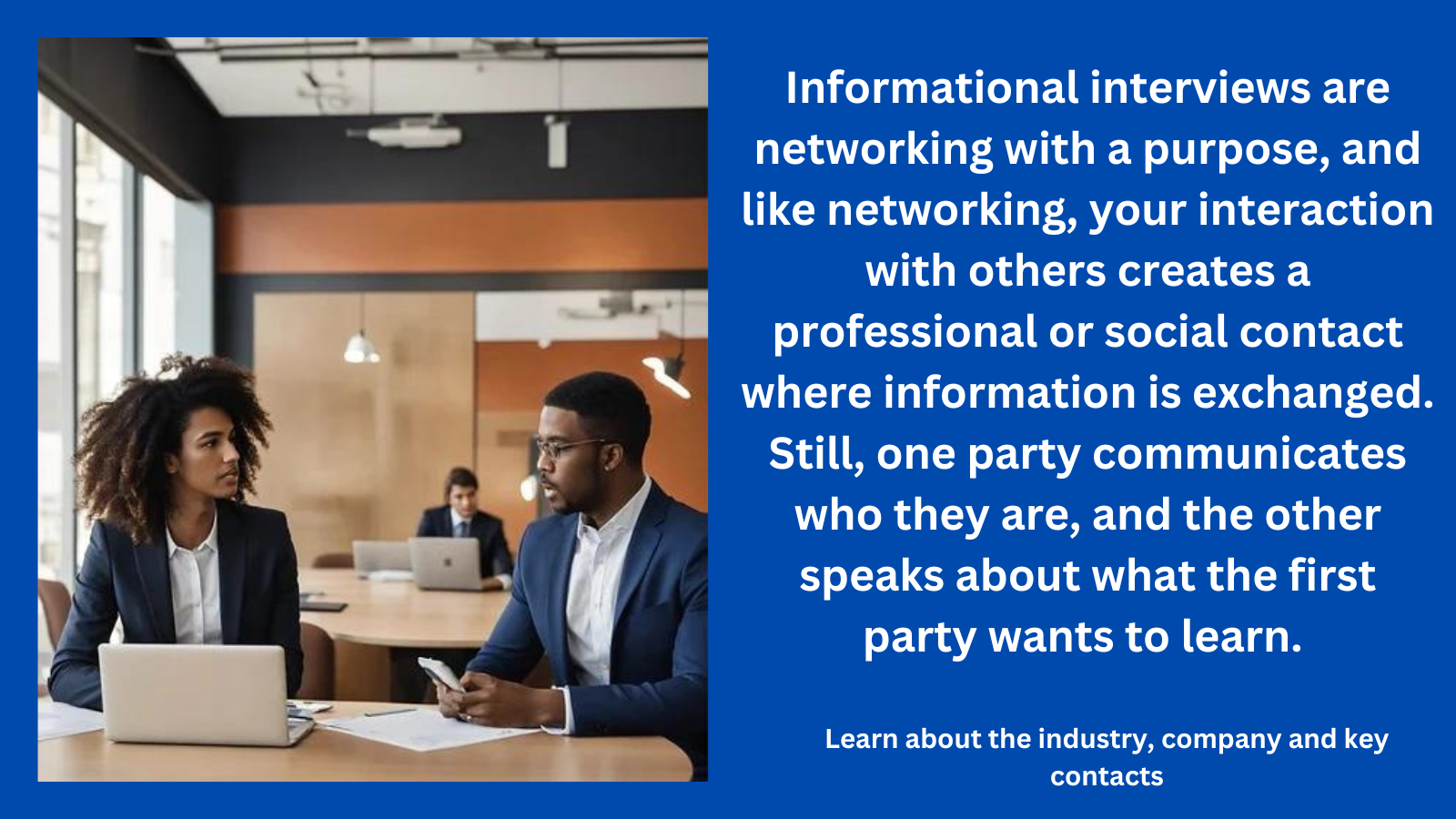The Power of Informational Interviews
Who are the people whose friendship and relationship you value most? What makes them stand out?
For many of us, the answer is simple: we are drawn to people who ask us thoughtful questions and genuinely listen. Our closest friends and strongest professional connections often act like natural interviewers. They draw us out, help us reflect, and become trusted parts of our personal and professional networks.
This dynamic—asking questions, listening deeply, and sharing insights—is also at the heart of informational interviews. These conversations go beyond casual networking. They give you the chance to learn directly from people who know an industry, a company, or a role better than anyone else. Done well, they put you in the driver’s seat of your professional journey.
Why Informational Interviews Matter
The traditional purpose of an informational interview is research. By speaking directly with someone working in a role or industry, you gain real-world knowledge that no job board or online article can fully provide. These conversations often reveal:
Firsthand stories and insights
Practical advice on entering or advancing in an industry
New contacts or resources you wouldn’t have found otherwise
Face-to-face conversations (or even video calls) add another dimension. When you sit across from someone, you pick up on subtleties—tone, body language, even information they might not feel comfortable sharing in writing. That personal touch often opens doors that digital communication alone cannot.
Networking with Purpose
LinkedIn has made it easier than ever to identify potential contacts. With a few clicks, you can see who works at a company, who your mutual connections are, and where opportunities might lie. But too often, the interaction stops at clicking “connect.” Real networking happens when you go further—by asking questions, building trust, and learning from the other person.
Whether online or in person, networking is most powerful when it has a purpose: to learn about the industry, the company, and the job you are pursuing.
Step 1: Learn the Industry
Understanding the broader industry is more than an advantage—it’s essential. It gives you credibility when speaking with employers and helps you frame your skills in the right context.
Your network—friends, neighbors, church groups, parent associations—can often connect you to someone in the industry. A simple ask like, “Do you know anyone in aerospace?” or “Do you know a retail manager I could talk to?” can lead to valuable introductions.
Questions to ask might include:
What do you enjoy most about working in this industry?
What skills are most important for success?
What advice would you give someone starting out?
Step 2: Learn the Company
Once you understand the industry, narrow your focus to specific companies. Suppliers, former colleagues, and competitors can give you insider perspectives—who’s growing, who’s struggling, and what makes a company stand out.
Past coworkers who have moved to competitors or suppliers are especially valuable contacts. They can provide candid insight into culture, hiring needs, and opportunities you might otherwise miss.
Step 3: Learn the Job
Finally, talk to people already doing the job you want. Their language, terminology, and stories will give you an edge in interviews. For example, in the restaurant supply industry, knowing that manufacturers and distributors refer to restaurants as the “end-user” signals that you understand how the business works. Using the right words can make the difference between sounding like an outsider and sounding like a natural fit.
Networking Beyond Job Searching
One of the biggest mistakes people make is waiting until they’re out of work to build a network. Yet research shows that:
80% of jobs are never posted publicly
Up to 85% of jobs are filled through networking
70% of the global workforce is passive talent—not actively job hunting but open to opportunities
Employers often prefer candidates who come recommended or who are already employed. That means networking and informational interviews should be a lifelong habit, not a last-minute scramble.
Making the Most of Informational Interviews
Prepare: Research the person, their company, and the industry before you meet.
Be respectful: Keep the conversation to 15–30 minutes unless they’re willing to extend it.
Don’t ask for a job: Your goal is to learn, not to pressure.
Follow up: Send a thank-you note and stay in touch. Offer value when you can.
Remember, networking is a two-way street. Share ideas, forward helpful information, and support your contacts. Over time, these relationships become a living network that benefits everyone.
A Final Thought
Eleanor Roosevelt once said:
“Never allow a person to tell you no who doesn’t have the power to say yes.”
This wisdom applies directly to networking. The purpose of informational interviews is to help you reach the people who can say yes—the ones who have the knowledge, the influence, and perhaps even the authority to open the right doors.
By asking good questions, listening carefully, and treating informational interviews as an essential part of your growth, you’ll not only gain insights—you’ll also shape your career with clarity and purpose.

